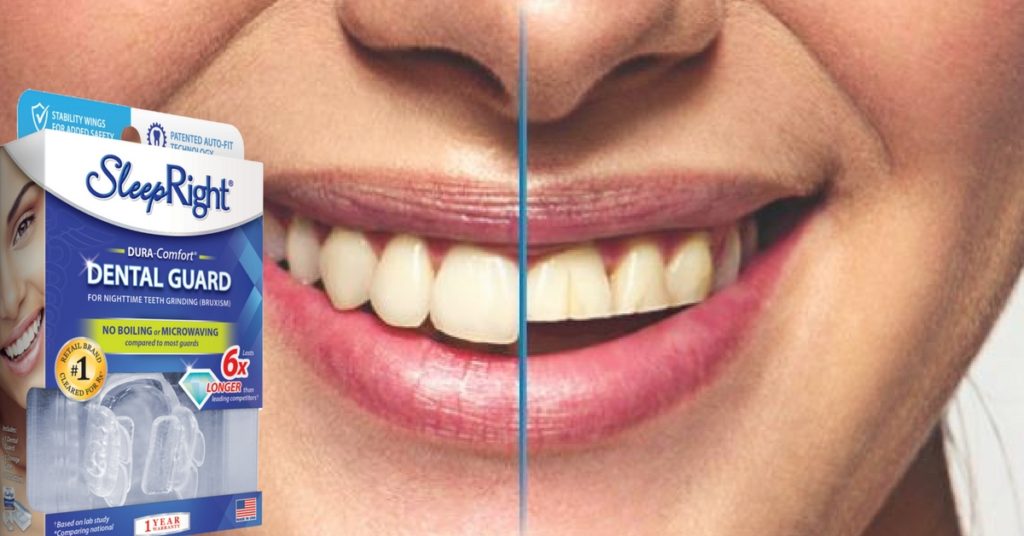A great smile is one of your biggest assets. A gorgeous grin can boost your self-confidence and make you appear younger and more attractive.
But if you grind your teeth at night, you’re putting your smile at risk. Regular teeth grinding can damage your teeth, putting you at risk of tooth decay and erosion, gum and periodontal disease, oral infections and tooth loss. Over time, grinding wears down teeth and reduces them to stubs, meaning that stunning smile you have now may disappear.
So what do you do to stop the grind and save your smile? After all, most teeth grinding occurs at night, so you may not even know you’re doing it. While the exact cause of teeth grinding is not fully understood and varies by case, the American Sleep Associations suggests that certain physical and emotional conditions can lead to grinding. These include: stress, anxiety, a side effect of medications, sleeping problems and misalignment of the upper and lower teeth. If you think you may suffer from a sleep disorder and it’s making you grind, consult a sleep specialist to diagnose your condition and prescribe a treatment.
Short of a sleep disorder, the University of Maryland Medical Center found that some simple self-care strategies and lifestyle changes can reduce grinding and help save your smile, including:
- Reduce stress. Stress can wreak havoc on many areas of your mind and body. A stressful workplace is common among teeth grinders, research has found. Doing something relaxing before bed, such as reading or taking a warm bath, may help decrease stress, which can reduce symptoms. During the day, try yoga, therapy or meditation to help you relax.
- Limit stimulants. Avoid or cut back on foods and drinks that contain caffeine, including sodas, energy drinks and coffee.
- Avoid alcohol. Studies have found that grinding intensifies after alcohol consumption.
- Avoid chewing unless it’s food. Do not chew on pencils or pens and avoid chewing gum because this allows your jaw muscles to get more used to clenching and makes teeth grinding more likely.
- Try not to clench or grind your teeth. If you catch yourself clenching or grinding your teeth during the day, place the tip of your tongue between your teeth. This practice trains your jaw muscles to relax.
- Relax your jaw muscles at night. Hold a warm washcloth against your cheek in front of your earlobe to help relax tense muscles.
- Wear a dental guard at night. A quality dental guard worn at night can protect your teeth from damage caused by grinding. SleepRight, the No. 1 dental guard brand prescribed by dental professionals, offers durable, no-boil and low-boil dental guards. The SleepRight Select guard requires no boiling or microwaving, as its patented self-adjusting technology conforms to the user’s bite, providing a comfortable, easy, custom fit. It features a strong bite pad designed to last long and flex slightly to match an individual’s bit angle. The SleepRight ProRx Custom guard lasts 10 times longer than the leading competitors, based on a lab study. This low-boil guard is made of a moldable thermoplastic material that softens at just 140 degrees Fahrenheit, as opposed to 212 F for most boil-and-bite guards. This ultra-thin guard is fitted by gently pushing the warmed thermoplastic material around the teeth. It also features position guides that center the molars when you bite down to guide the guard into position for the perfect fit. SleepRight dental guards are backed by a three-month warranty and have the best FDA safety record in their class. They are non-leaching and non-toxic, containing no BPA, latex, silicone or phthalate.
If you’re ready for a grind-free night’s sleep, cut the coffee, take a nice long bath and find the dental guard that will work best for you at www.sleepright.com/dental-guards. Stop the grind and save your smile!
Written by Nikki Swartz



